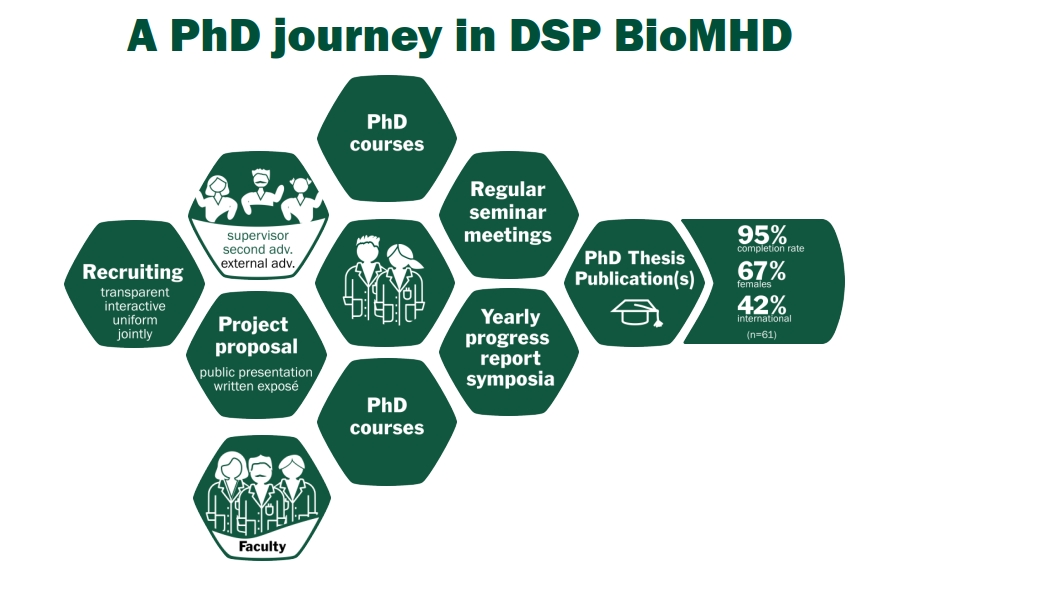One of the main objectives of the DSPB is to be an internationally visible and attractive educational platform for students at the University of Salzburg. To guarantee a constant influx of suitable candidates, a broad plenum of PIs has been assembled to form the Faculty of the DSPB. Within this pool of supervisors, PhD students can be recruited into the DSPB. Vacant PhD positions are advertised internationally and the selection takes place according to a standardized and transparent selection procedure. First, an interview with the candidate will be performed by the PIs. Suitable candidates will then be invited to give a talk at a hearing. For each hearing the recruiting PI as well as a minimum of two Faculty members or representatives therefrom, who will form the Selection Committee; will give scores on the performance of the candidate. To objectify the application process and guarantee a transparent selection of the most suitable candidates, standardized scoring sheets will be used for evaluation both of the interview and of the hearing. Gender mainstreaming principles will be implemented in the selection process.

A PhD student will give further talks after the interview:

Admission Talk: about the Master thesis and required for the acceptance for the DSP
Disposition talk: about the PhD thesis and will be evaluated by the NLW Promotionskommission. Is required by the PhD curriculum
PhD progress reports: A PhD students give at least three progress reports. The last one can be replaced by an extended talk.
PhD extended Talk: given by PhD students in the 3rd or 4th year and receives feedback by the faculty (personal conversation directly after the talk)
Additional Activities: The DSP BioMHD offers training opportunities such as special lectures and training courses, seminars, and individual mentoring programs for each PhD student, while focusing on basic and translational questions relating to biomolecules. The DSP BioMHD constitutes an important addition to the teaching landscape of biological sciences at the University of Salzburg and enhances scientific quality and visibility of the DSP BioMHD Faculty and fellows, as well as of the whole university.
- Weekly dissertation seminars: As part of the seminar, external speakers from Austria and abroad are invited to provide students with a wide range of scientific input, allowing them to extend their scientific network. In addition, students can also give their own presentations as a progress report or a 45-minute “PhD extended talk”, followed by extensive feedback provided by the DSP BioMHD faculty.
- Special courses: regular soft skill and wet lab courses are offered.
- Symposia: Each semester, a one- to two-day symposium is organized where PhD students can either give an admission talk, disposition talk or progress report. External speakers from Austria and abroad are always invited to provide students with a presentation platform and the opportunity to network.





